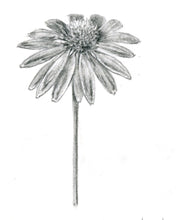Scientific name: Echinacea angustifolia
Common name: Echinacea
General description: It belongs to a genus of herbaceous perennial plants of the Asteraceae family, which is considered to be native to eastern and central North America, from the prairie and sparse forest habitats. The different species of this plant genus are attributed to immunostimulant properties and are known to be used by Native Americans as a medicine.
The plant is 40 to 70 cm high, producing purple and pink marigold-like flowers.
Nutritional facts: It is rich in polysaccharides, flavonoids, alkylamides, and essential oils.
GROWING CONDITIONS
Climate: Adapted to a Mediterranean climate, it needs good exposure to sunlight and can withstand sub-zero temperatures.
Soil: Rich in organic matter and well drained.
Watering: It needs moisture. Too much water should be avoided as it may cause the rhizomes to rot.
Harvest time: The flowers of Echinacea are harvested in spring, and the roots are harvested in late autumn, between the 3rd and 4th year of the plant life. The roots are harvested when the flowers are fully open to ensure maximum active ingredients.
Blooming season: Spring.




